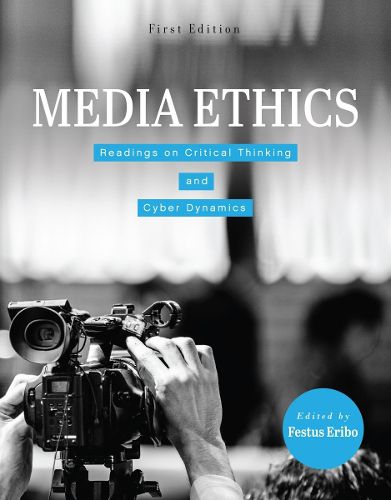Readings Newsletter
Become a Readings Member to make your shopping experience even easier.
Sign in or sign up for free!
You’re not far away from qualifying for FREE standard shipping within Australia
You’ve qualified for FREE standard shipping within Australia
The cart is loading…






Media Ethics: Readings on Critical Thinking and Cyber Dynamics highlights the importance of ethical communication and media practices to the preservation of contemporary social constructs and the continued support of human endeavor. The anthology examines the phenomenology of media ethics, critical thinking, digital revolution, social values, and the dynamics of culture and civilization over time.
The text is divided into four parts. Part I introduces the overarching concept of ethical principles, featuring readings that define ethics, explain why we need ethics policies and guidelines, and present scenarios where contemporary ethics come into play. In Part II, students read a selection of case studies that explore modern issues in ethics, including crowdfunding, access to the internet, and social media, blogging, and advertising. Part III presents select articles on social media, media ethics, and reputation and brand management. The final part addresses global challenges related to media ethics, including Wikileaks and issues in whistle blowing, phone hack scandals, China’s internet search market, and media ethics in Africa.
Timely and highly contemporary, Media Ethics is an ideal resource for undergraduate and graduate-level courses in communication and media ethics.
$9.00 standard shipping within Australia
FREE standard shipping within Australia for orders over $100.00
Express & International shipping calculated at checkout
Media Ethics: Readings on Critical Thinking and Cyber Dynamics highlights the importance of ethical communication and media practices to the preservation of contemporary social constructs and the continued support of human endeavor. The anthology examines the phenomenology of media ethics, critical thinking, digital revolution, social values, and the dynamics of culture and civilization over time.
The text is divided into four parts. Part I introduces the overarching concept of ethical principles, featuring readings that define ethics, explain why we need ethics policies and guidelines, and present scenarios where contemporary ethics come into play. In Part II, students read a selection of case studies that explore modern issues in ethics, including crowdfunding, access to the internet, and social media, blogging, and advertising. Part III presents select articles on social media, media ethics, and reputation and brand management. The final part addresses global challenges related to media ethics, including Wikileaks and issues in whistle blowing, phone hack scandals, China’s internet search market, and media ethics in Africa.
Timely and highly contemporary, Media Ethics is an ideal resource for undergraduate and graduate-level courses in communication and media ethics.